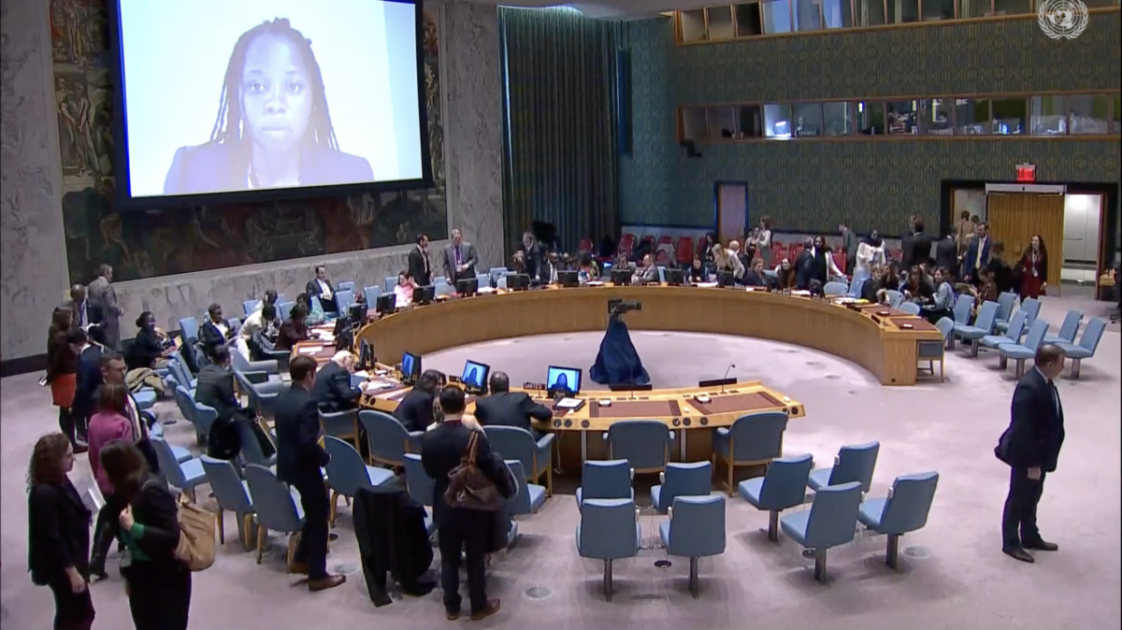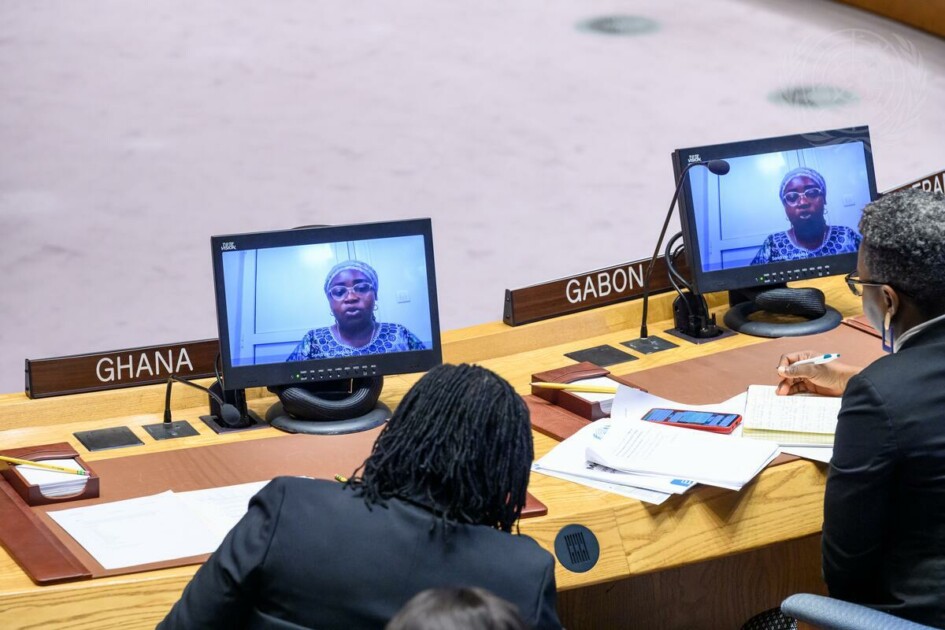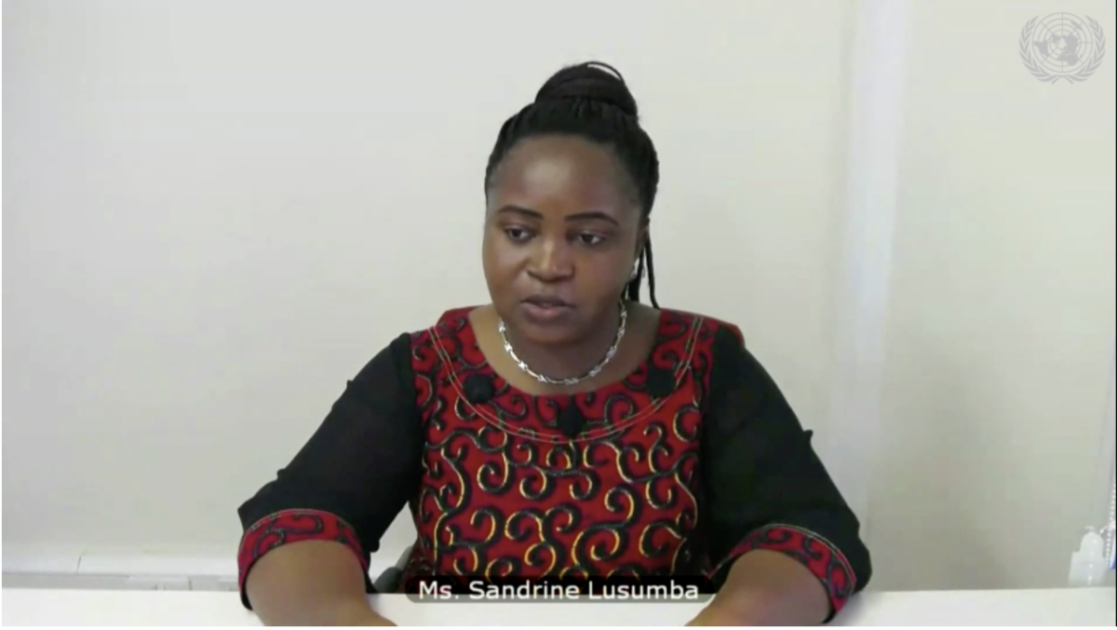Democratic Republic of the Congo
Women in the Democratic Republic of Congo continue to face widespread sexual violence, disease, and displacement in conflict situations arising from clashes between dozens of armed groups. Often, sexual violence and rape are used as terror tactics and weapons of war, and despite the ratification of the Convention on the Elimination of All Forms of Discrimination against Women (CEDAW) and the Women’s Platform for the Peace, Security and Cooperation Framework, women are still largely underrepresented in peacebuilding efforts. Additionally, women activists face rape as a form of torture by government actors who disagree with their political activity. The United Nations Organization Stabilization Mission in the DRC (MONUSCO) aims to provide protection for civilians, including reducing the threat of armed groups perpetrating sexual and gender-based violence, monitoring and reporting on sexual violence and ensuring women’s participation in stabilization and national political dialogue.
Democratic Republic of the Congo
Women in the Democratic Republic of the Congo continue to face widespread sexual violence, disease, and displacement in conflict situations arising from clashes between dozens of armed groups. Often, sexual violence and rape are used as terror tactics and weapons of war, and despite the ratification of the Convention on the Elimination of All Forms of Discrimination against Women (CEDAW), and the Women’s Platform for the Peace, Security and Cooperation Framework, women are still largely underrepresented in peacebuilding efforts.
Additionally, women activists face rape as a form of torture by government actors who disagree with their political activity. The United Nations Organization Stabilization Mission in the DRC (MONUSCO) aims to provide protection for civilians, including reducing the threat of armed groups perpetrating sexual and gender-based violence, monitoring and reporting on sexual violence and ensuring women’s participation in stabilization and national political dialogue.
Current and Past Recommendations to the UN Security Council (Monthly Action Points)
The Security Council is expected to renew the mandate and consider a report of the UN Organization Stabilization Mission in the Democratic Republic of Congo (MONUSCO). The existing references to women and girls in both the preambular and operative paragraphs of MONUSCO’s mandate should be maintained. The outcomes of Security Council Informal Expert Group on WPS meetings (S/2019/296, S/2018/885, S/2018/362) should be reflected; thus far, they have been inconsistently integrated (NGOWG). In addition, the Council should:
- Include new language mandating that the mission prioritizes women’s meaningful participation in all efforts to ensure inclusive peace and security, good governance and peace consolidation. The mission should also be mandated to ensure these efforts are gender-sensitive and informed by gender-sensitive conflict analysis and consultations with diverse women-led groups, women peacebuilders and women civil society leaders.
- Include new language mandating that the mission engages with diverse women-led groups, women peacebuilders, and women civil society leaders, including those representing marginalized communities, in all priority tasks, including those related to its protection of civilians efforts (S/RES/2409 (2018), OP 36(i)(c)).
- Include new language mandating that the mission monitors threats to CSOs, including women’s groups, and restrictions on democratic space, as well as prioritize the protection of women politicians, candidates, activists, and human rights defenders (CEDAW/C/COD/CO/8).
- Include new language mandating that the mission ensures its “enhanced political and conflict analysis” is gender-sensitive (S/RES/2463 (2019), OP 25).
- Include new language mandating that the mission supports local women-led groups, which are currently preventing violence and providing services to victims of sexual and gender-based violence (SGBV) including medical, psychosocial, legal and socioeconomic assistance.
- Call on humanitarian efforts, including the Ebola response, to be gender-sensitive and for all stakeholders to engage with diverse, local women-led groups, women peacebuilders and women civil society leaders.
- Call on the Government and international partners to ensure there is adequate funding for the implementation of the NAP on Resolution 1325 (2000) and that the planning, implementation, and monitoring is done in partnership with diverse women-led groups, women peacebuilders, and women civil society leaders.
- Call on the Government to ensure accountability and access to reparations for victims of conflict-related sexual violence, and to add domestic violence and marital rape into its penal code (CEDAW/C/COD/CO/8).
- Call upon the Government to effectively implement Act 08/005 (Article 3(5)) of 10 June 2008, which requests that political parties consider gender parity when establishing electoral lists and ensure that women are significantly represented in high-level decision-making positions.
- Call on the Government to pass a comprehensive reparations law that eliminates barriers to reparations for victims of SGBV and ensures full compliance with court-ordered reparations.
- Call upon the Government to enact the “Law on the prevention, control and reduction of small arms and light weapons and their ammunition,” which has been pending since 2013, and further engage CSOs, including women’s groups, in the development and implementation of disarmament and arms control programs that are gender-sensitive and tailored to the local context.
The Security Council is expected to renew the mandate and consider a report of the UN Organization Stabilization Mission in the Democratic Republic of Congo (MONUSCO). The existing references to women and girls in both the preambular and operative paragraphs of MONUSCO’s mandate should be maintained. The outcomes of Security Council Informal Expert Group on WPS meetings (S/2019/296, S/2018/885, S/2018/362) should be reflected; thus far, they have been inconsistently integrated (NGOWG). In addition, the Council should:
- Include new language mandating that the mission prioritizes women’s meaningful participation in all efforts to ensure inclusive peace and security, good governance and peace consolidation. The mission should also be mandated to ensure these efforts are gender-sensitive and informed by gender-sensitive conflict analysis and consultations with diverse women-led groups, women peacebuilders and women civil society leaders.
- Include new language mandating that the mission engages with diverse women-led groups, women peacebuilders, and women civil society leaders, including those representing marginalized communities, in all priority tasks, including those related to its protection of civilians efforts (S/RES/2409 (2018), OP 36(i)(c)).
- Include new language mandating that the mission monitors threats to CSOs, including women’s groups, and restrictions on democratic space, as well as prioritize the protection of women politicians, candidates, activists, and human rights defenders (CEDAW/C/COD/CO/8).
- Include new language mandating that the mission ensures its “enhanced political and conflict analysis” is gender-sensitive (S/RES/2463 (2019), OP 25).
- Include new language mandating that the mission supports local women-led groups, which are currently preventing violence and providing services to victims of sexual and gender-based violence (SGBV) including medical, psychosocial, legal and socioeconomic assistance.
- Call on humanitarian efforts, including the Ebola response, to be gender-sensitive and for all stakeholders to engage with diverse, local women-led groups, women peacebuilders and women civil society leaders.
- Call on the Government and international partners to ensure there is adequate funding for the implementation of the NAP on Resolution 1325 (2000) and that the planning, implementation, and monitoring is done in partnership with diverse women-led groups, women peacebuilders, and women civil society leaders.
- Call on the Government to ensure accountability and access to reparations for victims of conflict-related sexual violence, and to add domestic violence and marital rape into its penal code (CEDAW/C/COD/CO/8).
- Call upon the Government to effectively implement Act 08/005 (Article 3(5)) of 10 June 2008, which requests that political parties consider gender parity when establishing electoral lists and ensure that women are significantly represented in high-level decision-making positions.
- Call on the Government to pass a comprehensive reparations law that eliminates barriers to reparations for victims of SGBV and ensures full compliance with court-ordered reparations.
- Call upon the Government to enact the “Law on the prevention, control and reduction of small arms and light weapons and their ammunition,” which has been pending since 2013, and further engage CSOs, including women’s groups, in the development and implementation of disarmament and arms control programs that are gender-sensitive and tailored to the local context.
Relevant Resources









